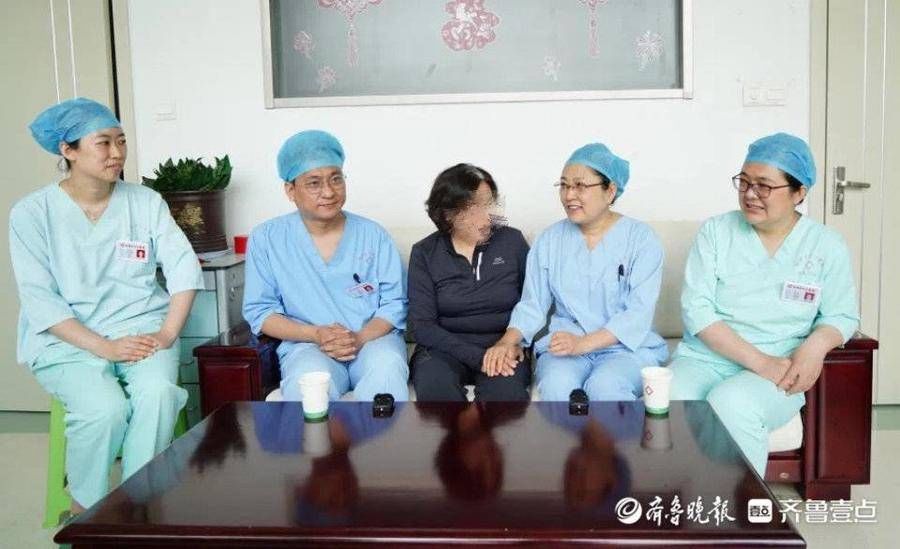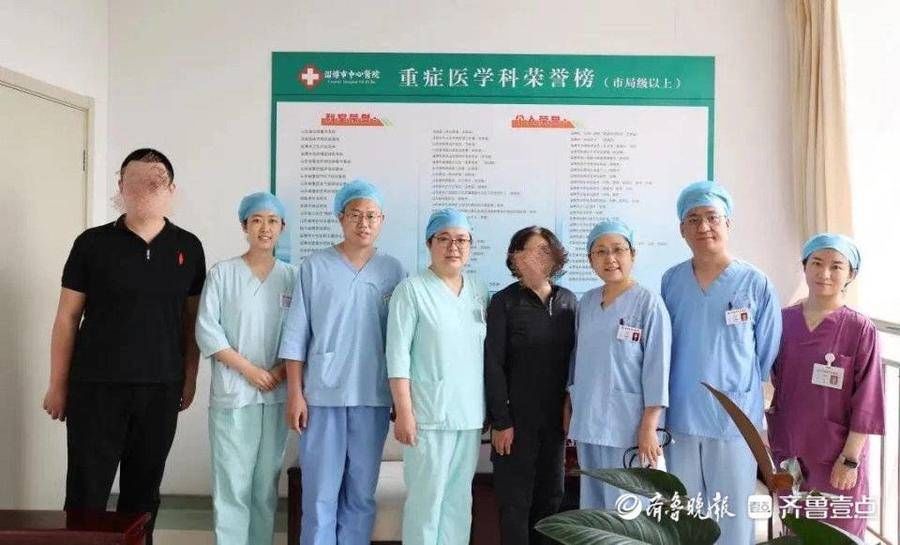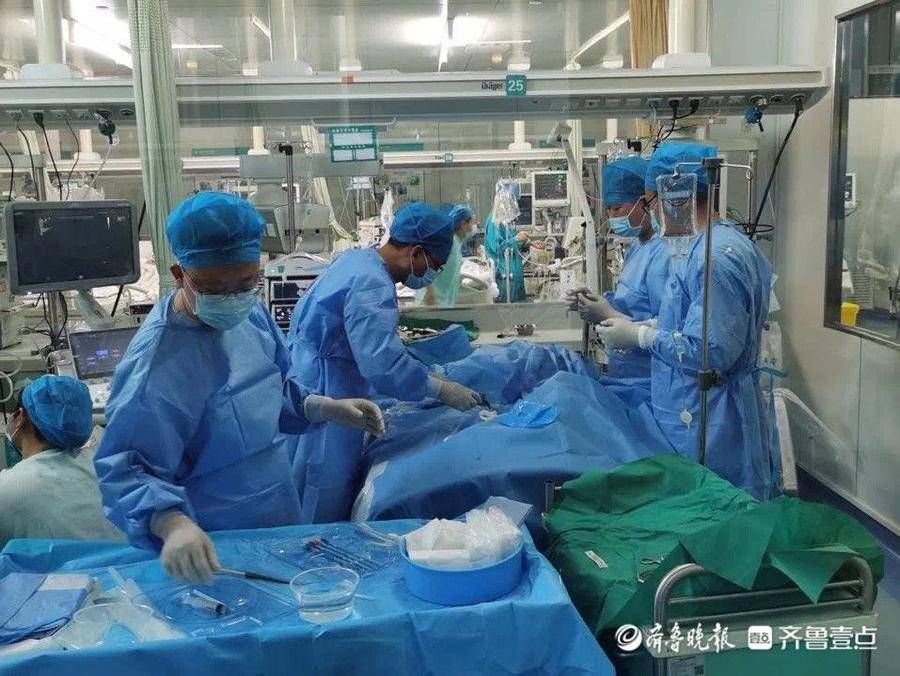Reporter Zhang Xiaoguang, Correspondent Chen Yuan
“Heart function is recovering well.” Zhang Rumin, director of the Department of Critical Care Medicine of Zibo Central Hospital, is examining Ms. Niu with a stethoscope.
Ms. Niu held Zhang Rumin’s hand tightly, she was a little excited: “I finally saw the medical team that rescued me at that time, thank you again!”

June 9, 2022 is one year since Ms. Niu was discharged from the hospital. One year ago, she was sent to Zibo Central Hospital for rescue due to “acute myocardial infarction”. This time, she and her son came back with fruit to visit the medical staff who had treated them.
“She sent me a WeChat message yesterday saying she wanted to come back to see us. It’s been so fast, it’s been a year…” Looking at Ms. Niu, who is now safe and healthy, Zhang Rumin recalled the critical scene when she was admitted to the hospital for rescue. , with tears in his eyes.

Time goes back to June 9, 2021…
On that day, 50-year-old Ms. Niu suffered from “acute myocardial infarction” He was sent to the emergency department of the East Hospital of Zibo Central Hospital for rescue. The patient suffered from frequent ventricular fibrillation and ventricular tachycardia. After 12 times of electrical defibrillation and resuscitation by medical staff in the emergency department, it was still difficult to maintain blood pressure, and his life was at stake. Zhang Rumin, director of the department, immediately notified Song Weiwei, deputy director of the Department of Critical Care Medicine, after receiving the call.
“At that time, the situation was very urgent. While arranging a consultation with Director Song, head nurse Zhang Hua hurriedly prepared beds for the patients. At the same time, the ECMO team was quickly activated to prepare rescue supplies.” Zhang Rumin recalled.
After the patient was transferred to the Department of Critical Care Medicine of the East Hospital, tracheal intubation and ventilator-assisted breathing were performed. The nursing team quickly completed the pre-filling of the pipeline and the debugging of the machine… Everyone cooperated and cooperated closely.
After more than an hour of hard work, VA-ECMO turned around smoothly, and the patient’s blood pressure gradually improved and heart rate gradually stabilized.
Zhang Rumin said: “The biggest difficulty in the rescue process is that the patient’s blood vessels are slender and encountered difficulties during puncture. Zhao Xuekai, assistant to the director of the Cardiac and Great Vascular Surgery Department, helped to incision and catheterization, and the ECMO was successfully turned. After CPR, not only the heart and lungs, but also the brain were successfully resuscitated, and we were relieved at that time.”

After successful transfer to ECMO, the patient Although the blood pressure and heart rate have improved, the coronary arteries are still blocked. Therefore, the department contacted Yin Bo, director of the emergency PCI team, and went to the catheterization room for recanalization with the assistance of ECMO. Zhang Hua, the head nurse of the Department of Critical Care Medicine of the East Hospital, coordinated the manpower and equipment during the transfer process to ensure the safety of the patients. The patients after PCI were sent to the intensive care unit. Because of the poor cardiac function, IABP combined with ECMO was placed.
“Mr. Niu’s recovery is so good in the later stage, which is the result of the hospital’s multidisciplinary teamwork.” Zhang Rumin said that during the treatment, the emergency treatment was pre-treated, the intensive care department took over the treatment, and the emergency PCI team continued the treatment… In the emergency rescue and treatment at that time, every link was very critical.
“During the hospitalization, the medical staff took special care of me, practiced writing and feeding, and they took good care of me. Some time ago, I was hospitalized for nucleic acid testing, and I found that the nurse who did the nucleic acid testing was from the Department of Critical Care Medicine. Although I was wearing a mask, I recognized it right away.” Teacher Niu said with a smile that she was really lucky and thanked the medical staff for giving her a second life.
Zhang Rumin said that she was very happy and a little excited to see Mr. Niu recover so well after a year. “We are now not only a doctor-patient relationship, but also good friends. We also interact frequently in private. We even made an appointment to do yoga together.”
Behind the successful rescue of every critically ill patient, is the The experts of an excellent medical team work together and the results of hard work represent the comprehensive treatment ability and level of a hospital.
As an advanced life support technology, ECMO requires high management of the treatment process and requires close monitoring of the patient’s vital signs and related complications, especially when the patient is awake with ECMO intubation. extremely high demands.
In fact, the ECMO team from the Department of Critical Care Medicine in Zibo City has successfully rescued many critical patients. On February 23, 2022, the team transferred ECMO across districts, and transported the patient back to the department after being put on ECMO outside the hospital, creating the first case in the city. According to statistics, up to now, the Department of Critical Care Medicine of Zibo Central Hospital has successfully rescued 37 patients, with a rescue success rate of over 65%.
The ECMO team of the Department of Critical Care Medicine of Zibo Central Hospital stated that in the future, the team will continue to guard the “last door” of patients’ health and escort the life safety and physical health of the people in the city.